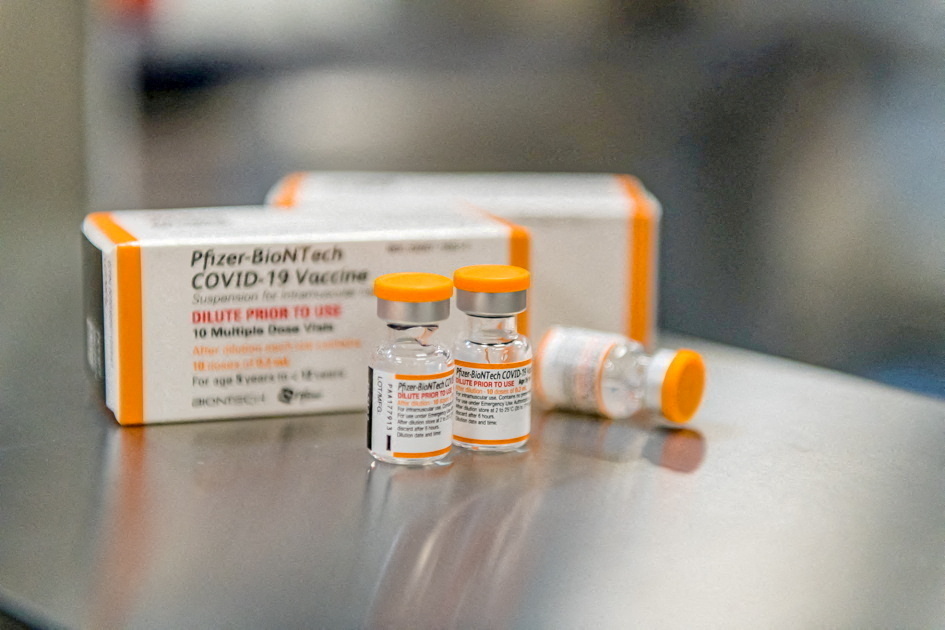
Lauren Dempsey, MS in Biomedicine and Law, RN, FISM News
[elfsight_social_share_buttons id=”1″]
Pfizer-BioNTech has announced their decision to delay their submission to the FDA which would modify the emergency use authorization to include children aged 6 months to 4 years old – the only age group that is currently ineligible for COVID-19 vaccination.
An expert panel was set to meet this week to examine the data and make a recommendation if children under five should start receiving COVID-19 vaccines. This meeting has been delayed, with the FDA saying that “additional information regarding the ongoing evaluation of a third dose should be considered.” This comes after the FDA had encouraged Pfizer-BioNTech to submit their data earlier than originally planned, due to the impact of the Omicron variant.
The decision to authorize the vaccine for young children has been met with hesitancy by many due to fears of the possibility of long-term effects and the fact that young children have exceedingly low risk for developing COVID complications.
Dr. Kelly Fradin said, “We continue to see many asymptomatic children who test positive for Omicron. I haven’t seen children becoming more sick with Omicron than with prior variants.” Omicron symptoms in children resemble cold symptoms including fever, cough, headache, fatigue, congestion and sore throat.
The trial includes about 8,300 children from all over the world at about 90 clinical trial sites and the first two doses in the series are administered three weeks apart. A third dose was given to those who were immunocompromised, with the third dose being given at least 28 days after the second dose.
The vaccines have not been evaluated when administered in conjunction with other childhood vaccines. Between ages 0-4 children are typically vaccinated against 13 different diseases.
The pharmaceutical company’s clinical trial for this age group had assessed the safety and efficacy of the two doses of the vaccine, which is one-tenth of the adult dose, however this was found to offer little protection in this age group, which led the company to add a third dose for preschool aged children.
Pfizer-BioNTech will continue to collect data in clinical trials after adding a third dose while the FDA approves a two-dose vaccine series. This data is expected to be available in April. Pfizer’s CEO Albert Bourla, believes that children will need three doses to provide adequate protection against coronavirus infection.
Pfizer-BioNTech’s clinical trial data is being shared with the FDA on a continuous basis and will allow “for a transparent public discussion as part of our usual scientific and regulatory processes for COVID-19 vaccines,” according to the agency. The Data Monitoring Committee supports this move and believes the additional information provided by the increased number of positive cases from Omicron will help to gather information that will further detail vaccine efficacy amongst this age group.
The Biden administration continues to push vaccination in children, believing it to be a key component in getting the country back to normal. However, a Kaiser Family Foundation poll shows that only 31% of parents say they plan to vaccinate their children under 5, while about 26% say they will definitely not choose to vaccinate.
Many experts and government health agencies continue to push mass vaccination for children especially with the surge of the Omicron variant, and while case counts have been elevated the mortality rates have continued to be extremely low in children.
According to the CDC, since January of 2020 there have been 296 children aged 0-4 that have died from COVID-19, accounting for only .004% of all deaths in this age group. The CDC does not collect data on how comorbidities contribute to pediatric deaths and has admitted that many children hospitalized with a COVID-19 diagnosis is incidental.
Based on the CDC’s data, COVID-19 deaths in children aged 0-17 accounted for under 1% of all pediatric deaths. Individuals 75 and older still account for the majority of deaths in the United States.
